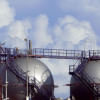Salt farmers depressed by low prices

The cracked and barren fields around the Chowfaldandi village in Cox's Bazar suggest that the season for salt cultivation has arrived. However, disheartened by low market prices of the daily essential, very few farmers are preparing their land for that purpose.
According to farmers, prices of the commodity are being suppressed by unsold stockpiles of unrefined salt from the prior season, when favourable weather conditions lead to a record volume of salt being produced in Bangladesh.
Last year, total production jumped to 24.38 lakh tonnes, the highest in 62 years.
But despite favourable weather conditions this time around as well, many farmers in the coastal district, where most of the country's salt is produced, expressed reluctance to cultivate salt, especially as many have unsold stock on hand.
Visiting Chowfaldandi on Sunday, huge salt heaps covered in black polythene could be seen scattered across fields.
Farmers said those stocks were from the last season, which runs for six months between November and May.
Abdur Rahim, a farmer, was selling salt to a wholesaler. He said he had stored 1,000 maunds last season in the hope that prices would rise in the future.
"But I never got as good a price as I did three months ago. At that time, salt was priced at around Tk 400 to Tk 450 per maund. After stocking them for several months, I am now having to sell at Tk 310 per maund, missing out on around Tk 1 lakh."
Md Sarwar Kamal, a wholesaler in Cox's Bazar Islampur upazila, the largest salt market in the region, said he purchases salt from farmers for Tk 310 per maund.
He then charges millers Tk 400 per maund. But after taking transportation and labour charges into account, his profit on each maund stands at Tk 10 to 20.
He added that millers were unwilling to buy salt at high prices as they also had stocks from the previous season.
"Market trends show that the price of newly cultivated salt will be much lower than prices last year," Kamal said, pointing out various stockpiles of polythene-covered salt in the surroundings.
Abdur Rahim, a farmer, explained that they were unable to break even at current prices.
"We get around 300 maunds of salt from one kani (40 decimals) of land. This year, the total cost, including the lease, labour, polythene and water stands at around Tk 1 lakh. So, if we get Tk 333 per maund, we can break even. We have to incur losses if the price is less than that."
In Kutubdia's Dhurung area, many farmers started early salt cultivation this year.
However, none of them could sell their harvest at their desired price. A farmer from Uttar Dhurung said salt was now selling for Tk 230 in the area, disappointing many.
However, Shamsul Alam, president of the salt mill owners' association of Islampur, shared a different opinion.
"Since farmers got high prices for salt last year, the cost of leasing the land has been raised to Tk 1 lakh per acre this year. This raised production costs automatically, forcing the farmers to swallow losses."
According to the Bangladesh Small and Cottage Industries Corporation (BCIC), they have set a target to produce 26 lakh tonnes of raw salt from 69,000 acres, mostly in Cox's Bazar, up from last year's acreage of 68,505.
Bangladesh's annual demand for salt is estimated at around 25.50 lakh tonnes.

 For all latest news, follow The Daily Star's Google News channel.
For all latest news, follow The Daily Star's Google News channel. 








Comments